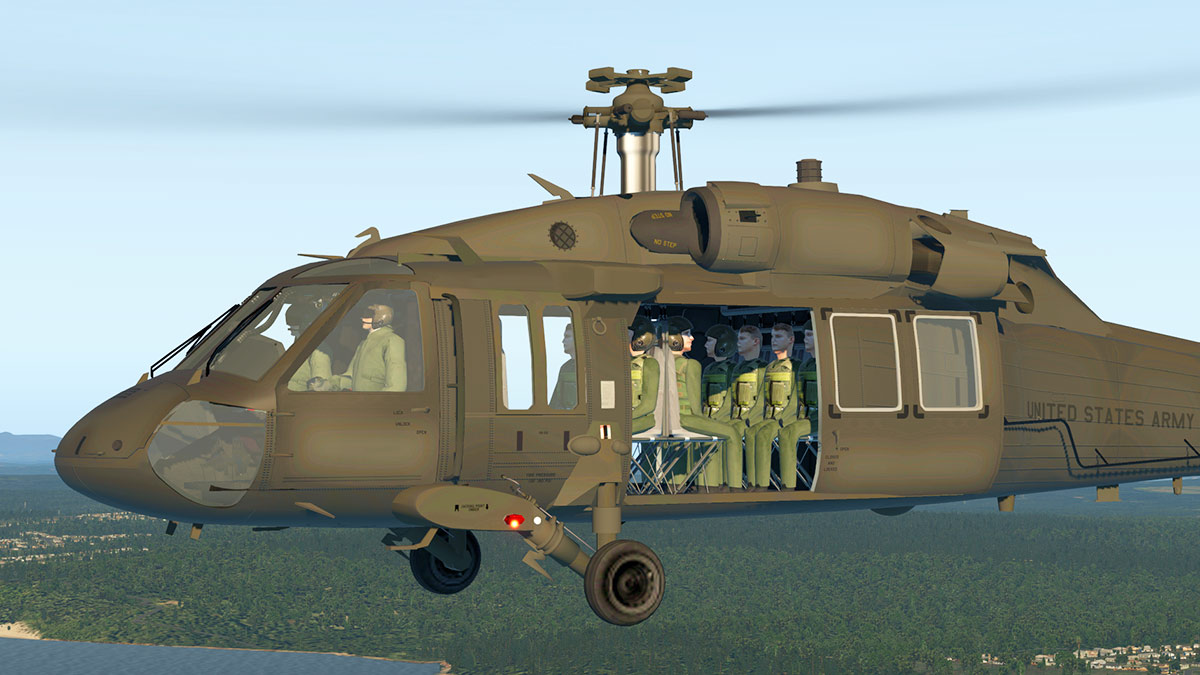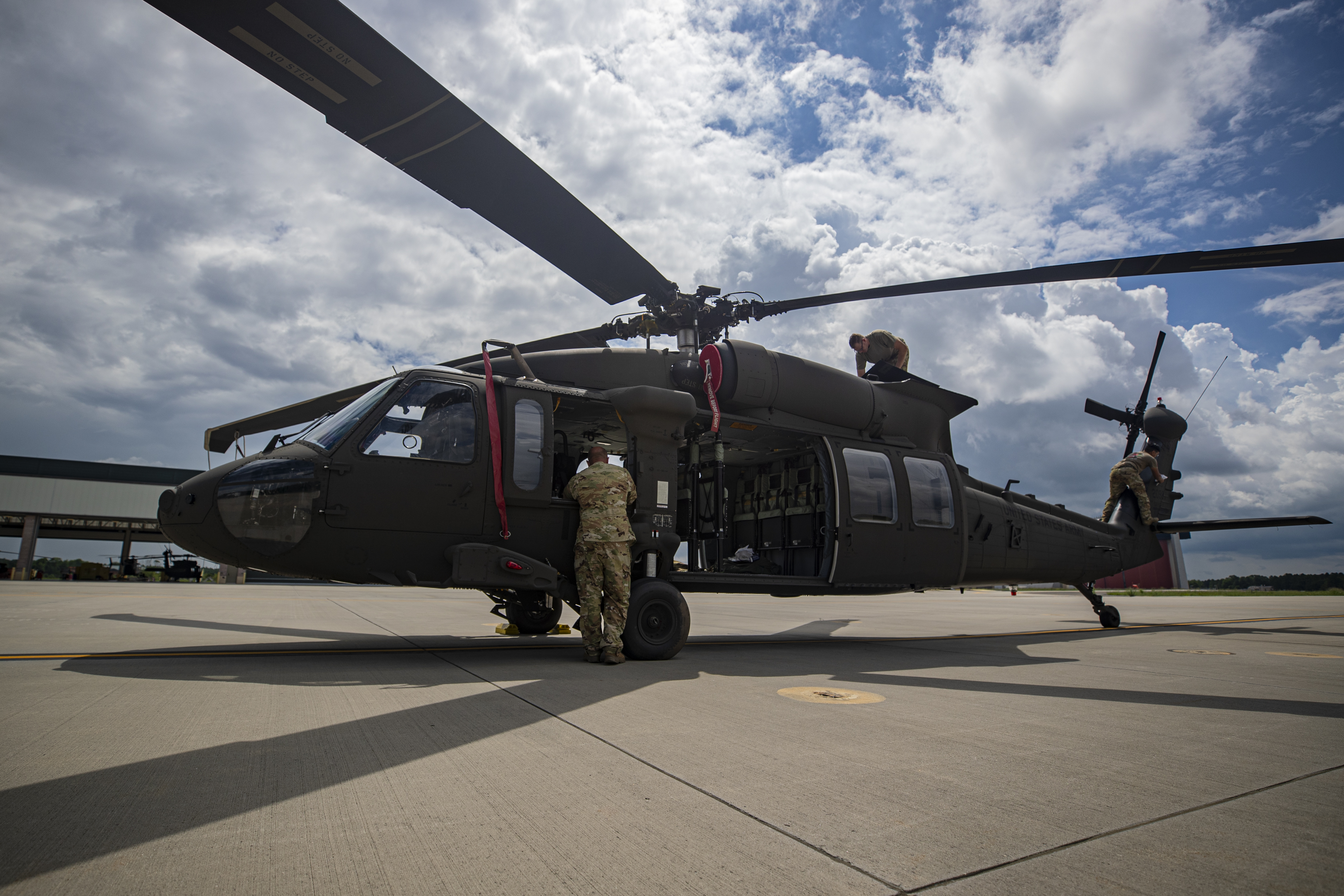UH 60 Black Hawk Helicopter Variations and Their Usages
UH 60 Black Hawk Helicopter Variations and Their Usages
Blog Article
The Impact of Lasting Practices on the Future of Airplane Operations and Emissions Reduction
As the aviation industry deals with enhancing scrutiny over its ecological effect, the fostering of sustainable practices becomes a critical path towards future airplane operations and emissions decrease. Technologies in sustainable air travel gas and advancements in hybrid propulsion innovations stand at the leading edge of this makeover, encouraging significant reductions in greenhouse gas exhausts. However, the effective integration of these initiatives depends upon a variety of elements, consisting of regulatory structures and market cooperation. The concern remains: just how will these developing methods improve the characteristics of flight and add to a much more lasting future?

Review of Lasting Practices
Sustainable practices in airplane operations encompass a range of approaches intended at reducing ecological impact while maintaining operational efficiency. These techniques are essential in the aviation sector's dedication to decreasing its carbon footprint and sticking to worldwide environmental requirements. Trick efforts consist of maximizing trip paths to decrease gas usage, improving maintenance methods to make sure airplane run at peak performance, and applying advanced technologies such as winglets and lightweight products that enhance aerodynamics.

Training and involving staff on sustainability methods also play an essential duty, promoting a society of environmental responsibility within organizations. Overall, the combination of these lasting practices not just assists reduce discharges but likewise enhances the lasting practicality of the air travel market, guaranteeing it satisfies the demands of both clients and regulative bodies while contributing to global sustainability objectives.
Ingenious Fuel Alternatives
Numerous innovative gas choices are becoming critical services to reduce the air travel sector's dependence on traditional fossil fuels. Amongst these alternatives, Sustainable Air travel Gas (SAFs) have actually obtained significant attention as a result of their possible to reduce lifecycle greenhouse gas exhausts by up to 80% compared to conventional jet gas. SAFs are originated from different feedstocks, consisting of waste oils, agricultural deposits, and even algae, making them a versatile choice for the industry.
Another encouraging alternative is hydrogen gas, which, when made use of in fuel cells, creates only water vapor as a result. This zero-emission prospective presents a considerable chance for decarbonizing trip procedures, particularly for short-haul flights and local aircraft. In addition, electric propulsion systems are being explored, leveraging battery technology to power airplane. While present battery capability limits variety and payload, ongoing developments might quickly make electric flights sensible for certain applications - uh 60.
Lastly, biofuels originated from biomass are being checked out, using a sustainable option that can be mixed with traditional gas. Jointly, these cutting-edge fuel options stand for a crucial action towards accomplishing a lasting air travel ecological community, aligning with worldwide discharges decrease targets and improving the sector's environmental stewardship.
Technical Developments in Aeronautics

How can technical developments improve the future of aeronautics? Technologies such as hybrid and electric propulsion systems are at the forefront, appealing considerable decreases in gas consumption and greenhouse gas emissions.
Additionally, the implementation of innovative materials, such as lightweight composites, adds to enhanced the rules of aerodynamics and fuel efficiency. Making use of expert system and artificial intelligence in trip operations optimizes route planning and reduces gas burn by allowing real-time changes based on climate and website traffic conditions. In addition, the growth of autonomous and from another location piloted aircraft systems stands to transform cargo and guest transport, potentially enhancing effectiveness click this while decreasing human mistake.
In addition, lasting aeronautics modern technologies, including innovative air web traffic management systems, can enhance procedures and decrease blockage, resulting in lower exhausts during trip. These innovations collectively stand for a paradigm change in air travel, assuring a future where sustainability and operational efficiency are intertwined, thus sustaining the sector's commitment to decreasing its environmental impact.

Regulative Framework and Conformity
Taking into account the expanding emphasis on environmental stewardship within the air travel industry, the regulatory framework governing aircraft operations is developing to promote sustainable practices. Governing bodies, such as the International Civil Aviation Company (ICAO) and different national aviation authorities, are introducing stringent guidelines focused on minimizing discharges and improving functional efficiency.
These laws often consist of the adoption of Lasting Aeronautics Fuel (SAF), which has actually been recognized as a key component in accomplishing lower carbon footprints. Compliance with these laws needs airline companies to carry out operational methods and advanced innovations, such as maximized flight courses and boosted air website traffic administration, to reduce gas usage.
Furthermore, the enforcement of exhausts trading plans and carbon countering efforts is ending up being significantly prevalent, compelling airlines to keep track of and report their exhausts precisely. Non-compliance can lead to substantial fines, therefore pressing operators to focus on sustainability in their business versions.
Eventually, the advancing regulative landscape not only drives innovation and financial investment in environment-friendly continue reading this innovations however additionally cultivates a society of accountability within the aeronautics sector. As these structures proceed to create, the concentrate on sustainable techniques will be important to accomplishing the industry's long-lasting ecological goals.
Future Trends in Airplane Operations
As the air travel sector adapts to a significantly stringent regulative environment, future trends in airplane procedures are readied to concentrate on cutting-edge services that further enhance sustainability and effectiveness - uh 60. Key growths will likely include the adoption of innovative air traffic administration systems, which utilize real-time data and artificial intelligence to optimize trip paths, reducing gas intake and exhausts
An additional substantial pattern is the enhanced assimilation of sustainable air travel gas (SAFs) These choices to standard jet gas, stemmed from renewable sources, can significantly decrease lifecycle greenhouse gas emissions. The industry's commitment to have a peek here SAFs will likely increase as airline companies team up with gas manufacturers to guarantee availability and cost-effectiveness.
Furthermore, the push in the direction of electrification and crossbreed propulsion systems is gaining energy. Emerging aircraft styles will certainly incorporate these innovations, offering quieter and extra efficient procedures, especially for short-haul flights.
Conclusion
In conclusion, the assimilation of lasting techniques in airplane procedures holds significant potential for exhausts decrease and boosted effectiveness. The adoption of sustainable air travel fuels, coupled with innovations in hybrid and electric propulsion systems, is essential for lessening lifecycle greenhouse gas emissions. Additionally, maximizing trip courses and accepting cutting-edge modern technologies add to a quieter and extra eco-friendly air travel field. Jointly, these efforts straighten with global sustainability goals and pave the means for a greener future in aeronautics.
Innovations in sustainable air travel fuels and improvements in hybrid propulsion technologies stand at the forefront of this transformation, promising substantial reductions in greenhouse gas emissions.Various innovative gas alternatives are arising as essential solutions to lower the air travel market's dependence on standard fossil gas - uh 60. Among these choices, Sustainable Aeronautics Fuels (SAFs) have actually gained considerable attention due to their potential to lower lifecycle greenhouse gas exhausts by up to 80% contrasted to standard jet fuels.An additional significant pattern is the enhanced integration of lasting aviation fuels (SAFs) The fostering of sustainable air travel fuels, paired with advancements in electric and hybrid propulsion systems, is essential for lessening lifecycle greenhouse gas emissions
Report this page